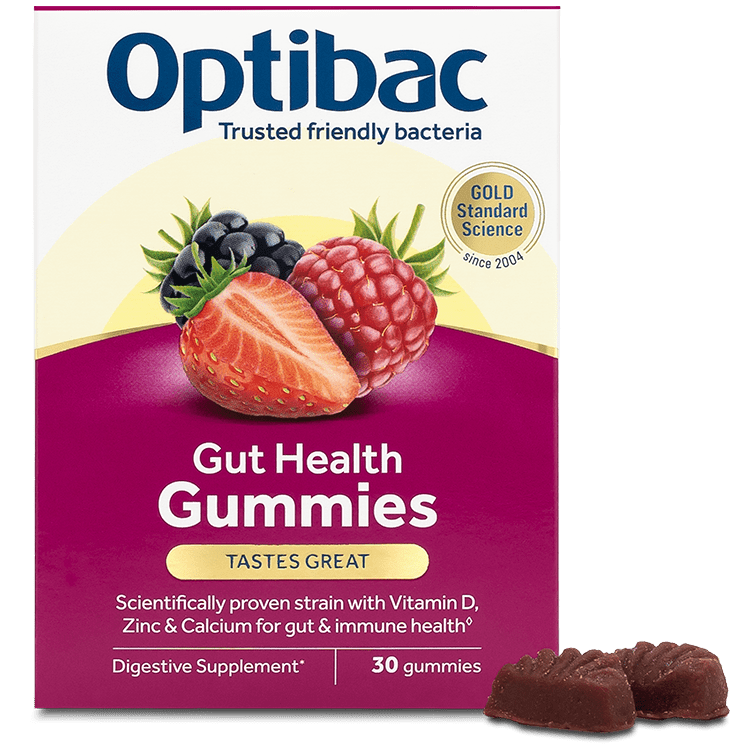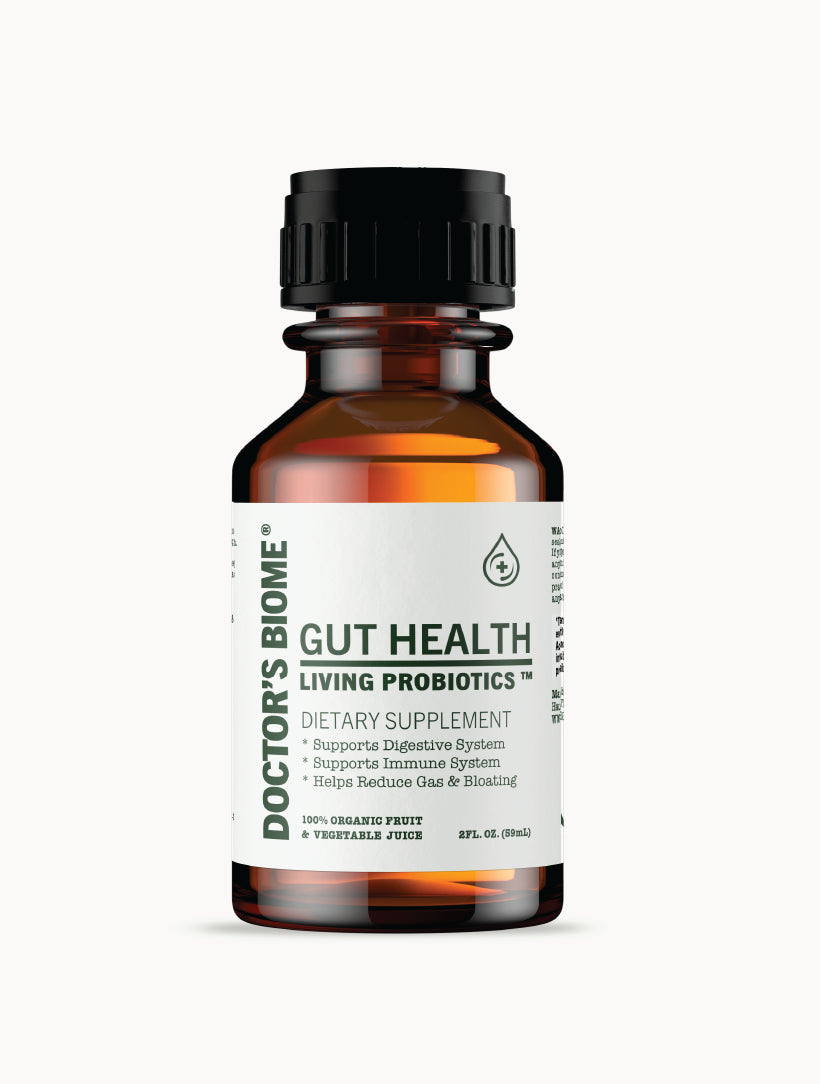Checking out the Causes and Symptoms of Intestine Issues and the Duty of Gut Health Supplement
Gut wellness is an essential facet of general health. Poor nutritional selections, tension, and inequalities in intestine microorganisms can bring about various digestive issues. Signs and symptoms such as bloating, diarrhea, and stomach discomfort typically show much deeper wellness problems. Recognizing these reasons and the prospective role of intestine health supplements may give important understandings. What methods can be employed to bring back equilibrium and improve digestive tract function? The solutions might exist in the next steps.
Recognizing the Digestive Tract Microbiome
The intestine microbiome, a complicated ecosystem of trillions of bacteria residing in the gastrointestinal tract, plays a necessary duty in total wellness. This varied area is composed of microorganisms, viruses, fungis, and various other microorganisms that connect symbiotically with the human host. They help in the digestion of food, the synthesis of vitamins, and the policy of metabolic process. In addition, the digestive tract microbiome greatly affects the body immune system, aiding to shield versus microorganisms and preserve a balanced inflammatory reaction. Research study suggests that a healthy and balanced microbiome is important for mental wellness, with gut-brain interactions influencing state of mind and behavior. Aspects such as diet, lifestyle, and environmental direct exposures can form the composition of the microbiome, emphasizing the significance of keeping a well balanced diet abundant in fiber and probiotics. Understanding this detailed ecosystem uses insights right into how intestine health can influence total physical and mental well-being, highlighting its significance in health management.
Typical Sources Of Digestion Issues
Although numerous aspects can add to digestive problems, specific common causes often interfere with digestive tract health. Poor dietary choices, such as high sugar and refined food consumption, can lead to inequalities in intestine germs. In addition, poor fiber intake can impede digestion and advertise irregularity. Anxiety is an additional substantial factor, as it can modify digestive tract function and worsen current conditions. Lack of physical task might slow down the digestion system, causing pain and bloating.
Infections, consisting of bacterial, viral, or parasitic representatives, can additionally trigger stomach disturbances. Food intolerances and allergic reactions, especially to gluten and lactose, frequently cause digestive discomfort. Finally, the misuse of prescription antibiotics can interrupt the natural microbiome, resulting in additional difficulties. Acknowledging these typical reasons is necessary for individuals looking for to improve their digestive tract health and total health.
Acknowledging Signs of Intestine Issues
Identifying signs and symptoms of intestine problems can be necessary for timely intervention and boosted wellness. Individuals experiencing stomach pain ought to understand numerous typical indicators that recommend underlying issues. Symptoms may include bloating, gas, diarrhea, irregular bowel movements, and abdominal discomfort. These symptoms can differ in strength and regularity, often mirroring the severity of the gut trouble. Furthermore, some individuals may see unplanned weight loss, exhaustion, or changes in cravings, which might signal an extra severe problem. Skin concerns, such as breakouts or acne, might likewise emerge, connecting intestine health and wellness to total health. Importantly, consistent symptoms need to not be disregarded, as early acknowledgment can help with efficient treatment and protect against further complications. A complete understanding of one's bodily signals is essential, making it possible for people to look for clinical recommendations when essential and possibly bring about better wellness end results through ideal interventions.
The Impact of Diet Regimen on Intestine Health And Wellness
Diet plan plays an important function in identifying digestive tract health and wellness, affecting both microbial balance and digestive system efficiency. Nutrient-rich foods can promote a healthy gut setting, while processed foods may bring about inequalities and digestion concerns. Recognizing these nutritional impacts is vital for preserving overall intestine health.
Nutrient-Rich Foods
While several aspects influence intestine wellness, the role of nutrient-rich foods can not be overemphasized. A diet plan plentiful in whole foods, such as fruits, veggies, whole grains, lean healthy proteins, and healthy fats, adds greatly to keeping a well balanced intestine microbiome. These foods provide important vitamins, minerals, and antioxidants that support gastrointestinal health and wellness and lower swelling. Fiber-rich options, especially, promote normal digestive tract motions and nurture advantageous intestine microorganisms, enhancing overall intestine feature. Probiotic-rich foods like yogurt and fermented veggies additionally support gut vegetations, aiding digestion. Integrating a variety of nutrient-dense foods not only fosters a healthy and balanced intestine atmosphere Click This Link yet also strengthens the body immune system, contributing to general well-being. Prioritizing these foods can lead to enhanced intestine wellness and protect against potential concerns.
Processed Food Effects
The intake of refined foods can substantially threaten intestine health, neutralizing the advantages of nutrient-rich options. These foods are typically high in preservatives, sugars, and additives, which can interfere with the balance of gut microbiota. A diet abundant in processed items has a tendency to do not have essential nutrients, causing deficiencies that jeopardize digestive system feature. Too much sugar and harmful fats can advertise swelling and add to conditions like cranky bowel disorder (IBS) and dripping intestine syndrome. This inequality might lead to signs and symptoms such as discomfort, gas, and bloating. Furthermore, the reduced fiber web content in processed foods lessens gastrointestinal health and wellness by limiting the growth of useful microorganisms. Inevitably, a change towards whole, unprocessed foods is vital for preserving ideal gut feature and overall well-being
Just How Anxiety Impacts Digestion
Stress significantly influences food digestion by causing a waterfall of physical responses that can interfere with normal intestinal feature. When a specific experiences tension, the body enters a fight-or-flight setting, launching hormonal agents such as cortisol and adrenaline. These hormones can slow down digestion by decreasing blood circulation to the gastrointestinal body organs, bring about signs and symptoms More Help such as bloating, diarrhea, or constipation.
Stress can modify the digestive tract microbiome, negatively affecting the equilibrium of useful germs. This imbalance can exacerbate existing gut issues or develop brand-new ones. Furthermore, anxiety frequently leads to undesirable eating practices, such as overindulging or consuming refined foods, which can better jeopardize digestive system health.
Emotional aspects, such as stress and anxiety and clinical depression, can likewise contribute to stomach discomfort, developing a comments loophole that bolsters intestine problems. Comprehending the elaborate connection between stress and anxiety and digestion is important for maintaining overall digestive tract health and wellness.
The Function of Digestive Tract Health Supplements
Digestive tract health supplements play a considerable duty in boosting digestion feature and general wellness. Key active ingredients, such as probiotics and prebiotics, are important for preserving a well balanced gut microbiome. Comprehending the advantages and elements of these supplements can aid individuals in making notified choices for their gastrointestinal wellness.
Advantages of Gut Supplements
A prospering gastrointestinal system is essential for general health, and intestine health supplements can play a considerable function in accomplishing this balance. These supplements commonly contain probiotics, prebiotics, and various nutrients that support digestive feature and promote a healthy digestive tract microbiome. By improving the growth of useful microorganisms, they can boost digestion, decrease bloating, and relieve pain related to intestinal page issues. In addition, digestive tract supplements might strengthen the intestine barrier, potentially decreasing the risk of food sensitivities and inflammatory conditions. Routine usage can likewise add to boosted nutrient absorption, energy levels, and even psychological well-being, as gut health and wellness is very closely connected to state of mind policy. Eventually, including intestine health supplements can be a tactical approach to keeping gastrointestinal harmony and total wellness.

Secret Components to Think About
When choosing digestive tract health and wellness supplements, recognizing the essential active ingredients is vital for maximizing their advantages. Probiotics, especially Lactobacillus and Bifidobacterium strains, are important as they assist recover a well balanced gut microbiome. Prebiotics, such as inulin and fructooligosaccharides, function as food for these useful microorganisms, promoting their development. Digestive enzymes, consisting of amylase and protease, help in breaking down food, improving vitamins and mineral absorption. Furthermore, fiber resources like psyllium husk assistance regular digestive tract activities and overall intestine health and wellness. Other useful active ingredients may consist of L-glutamine, which helps out of commission digestive tract lining, and zinc, understood for its immune-supporting residential or commercial properties. Selecting supplements with these key components can greatly boost digestive tract health and overall health.
Tips for Preserving a Healthy Gut
Maintaining a healthy intestine is crucial for overall wellness, as it plays a crucial function in nutrient, resistance, and digestion absorption. To sustain gut health, people ought to focus on a balanced diet plan rich in fiber from fruits, veggies, and entire grains. These foods promote beneficial microorganisms in the gut. Additionally, integrating fermented foods such as kefir, sauerkraut, and yogurt can improve gut plants variety. Remaining hydrated is also critical, as adequate water consumption help food digestion and nutrient transport.
Regular exercise adds to intestine health by promoting reliable digestion and minimizing stress, which can detrimentally influence gut function. Taking care of stress through mindfulness practices like reflection or yoga can also support gut wellness. Ultimately, avoiding excessive use of anti-biotics and restricting refined foods, sugars, and unhealthy fats can foster a balanced gut atmosphere. By taking on these practices, individuals can greatly enhance their digestive tract wellness and overall health.
Often Asked Inquiries

Can Digestive Tract Wellness Effect Mental Health and Mood Security?
Study shows a significant link in between gut wellness and psychological health. The intestine microbiome can affect mood security and mental wellness, suggesting that keeping a healthy intestine may add positively to emotional durability and cognitive feature.
Exist Specific Foods to Prevent for Better Gut Wellness?
Specific foods can adversely impact intestine health, including refined sugars, synthetic sugar, and high-fat dairy products. Minimizing these products might boost gastrointestinal function and advertise a much healthier intestine microbiome, bring about overall better health and wellness.
The length of time Does It Consider Intestine Wellness Supplements to Program Results?
The duration for gut health supplements to show results differs among people. Typically, obvious changes might take place within a couple of weeks, however some people may call for a number of months for ideal results, depending upon their one-of-a-kind health and wellness conditions.
Can Children Experience Digestive Tract Concerns Similar to Adults?

Children can experience gut problems similar to adults, including pain, bloating, and uneven defecation (supplement for bloating). Aspects such as diet plan, stress and anxiety, and infections may contribute to these problems, making understanding and monitoring necessary for their health
What Are the Long-Term Impacts of Untreated Gut Issues?

Fiber-rich alternatives, particularly, promote regular bowel motions and nurture advantageous intestine microorganisms, enhancing overall intestine function. A growing gastrointestinal system is critical for general wellness, and digestive tract wellness supplements can play a considerable role in achieving this balance. In addition, intestine supplements may reinforce the intestine barrier, possibly decreasing the threat of food sensitivities and inflammatory conditions (supplement for bloating). Routine physical activity contributes to intestine health by advertising reliable food digestion and reducing anxiety, which can negatively impact intestine feature. Certain foods can negatively affect digestive tract wellness, consisting of refined sugars, fabricated sugar, and high-fat milk items